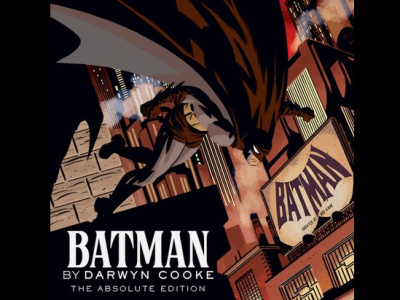As we were researching the our Blast from the Past article for November, 2004, which covered events in the comics, game, anime, and licensed products industries from 10, 15, and 20 years ago (see 'Blast from the Past'), we came across a key document in the history of the direct comics market. In 1994, Internal Correspondence interviewed Ed Shukin, a pivotal figure in the history of the business. In the seventies, at the origin of the direct market distribution system which currently accounts for 90% of all comics sold, Shukin was in charge of circulation at Marvel Comics, then, as now, the largest comic publisher. Shukin held a variety of other posts in his multi-decade career, including his position as top circulation dog at the now-defunct Tekno Comics when this interview was conducted. We present the interview in two parts. Here is Part 2. For Part 1, see 'The Origin of the Comics Direct Market -- Part 1.'
Did anyone in the mid-seventies see the direct market eclipsing the newsstand market?
Not in its infancy. However, after the unprecedented upward trends of its first few years, the answer is yes, we thought it could. It did of course happen, albeit quicker than we thought. The annual growth trends were expected to slow down. Instead, happily, they escalated.
Do you remember the year when direct market sales surpassed those of the IDs? Why do you think the direct market grew so much faster than other channels?
Since I was out of the industry on a day-to-day basis at the time, I can only conjecture about the first part of your question. My suspicion is that it happened during the mid-1980s. The other part of your question is easy to answer. The direct market is committed to the product. The distributors work hard to expand retailer exposure. Equally or more important, they understand the product. You tell the direct distributors that Gaiman, Miller, and McFarlane are collaborating on a publication, their breath expands to short gasps since they realize what this would mean in monumental sales and profits. Tell the IDs that these three people are involved, they assume that this means three partners in a Brooklyn delicatessen, non-kosher obviously. Of course the other consideration is that comics were promoted for collector value, and that brought more customers into the direct market. We know now that has turned into a double-edged sword.
Did the IDs or anyone else ever try to scuttle the direct market through pressure on the publishers?
No, not overtly, they understand the law well enough not to expose themselves to restraint of trade or monopoly charges. As the direct market grew and they took notice, they did express dismay at someone other than themselves distributing periodicals in their service area. Their complaints were unfair discounts -- how could they compete? Frankly, I offered them identical terms if they bought under identical conditions. But of course, firm sale to the IDs was unthinkable; the whole cause celebre was a reincarnation of what happened in the paperback business in the 50s. Book publishers started to service independents and chains on a direct basis, [and] book jobbers and rack jobbers came into being. The IDs had competition, and they didn't like it. Eventually it was accepted as a publisher necessity and the problem went away. The same with comics, although I must confess some difficult years and sleepless nights because of my interaction with the ID community. After decades of a solid, supportive relationship, I was now an adjudicated Judas. Ah well, I survived, and today it's all yesterday's newspaper.
How would you compare the market in the mid-90s with its counterpart in the 70s?
The consummate understatement would be to say that it's like night and day. The market then was not so glutted. Undercapitalized, wannabe publishers were not flitting about looking for a fast buck. Quality, to the best of a publisher's ability, was the order of the day. Product was published for consumption in both the newsstand and the direct market. It's needless to detail how much of this has, in the past few years, been 180 degrees removed from that.
From the standpoint of distribution, the direct distributors (in the 70s) were more regionalized, and, in my opinion, that led to better control of their business. There was one person to talk to, and that person was always accessible. Today it's departmentalized, and one project can require talking to four different people, if you can reach them.
And of course, consolidation has resulted in a decrease in the number of distributors. An analogy I can draw is that when I was a young kid in national distribution I did business with over 900 IDs; today there are only about 325 [This has collapsed to a handful in 2004 -- ed.]. Efficiency and sales haven't resulted from this consolidation in the ID market. I wonder if, on a long term basis, the direct market can flourish with any more consolidation. That's my major concern as I think about the next couple of years. Yeah, the industry has come into the 20th century, computers took the place of hands-on people, sales grew, principals made lots of money, and the comic industry was reintroduced as part of Americana -- all great, but it came about with a price to pay. I'm an admitted old warhorse, I liked it better the old way -- the same result would have come about without depersonalization.
You were involved with the direct market at the beginning. How do you see it evolving over the next decade?
Well, obviously I'm hoping for a reversal of the current trends, and that we again show annual growth. Pragmatically, I don't think we can ever again duplicate the annual trends of the 70s and 80s, but with a sensible approach, we can again generate reasonable and consistent increases year-to-year. Obviously, to do that we are going to have to control volume, make quality, not quantity, the principle commitment, and improve the levels of communication. But perhaps most of all, let's as an industry work at producing what the consumer wants to read, not put away in a polybag because it will be worth more later on. Entertain and satisfy the reader, he or she will come back month after month, and that's a more intelligent and ultimately successful way to sustain a wonderful business.







